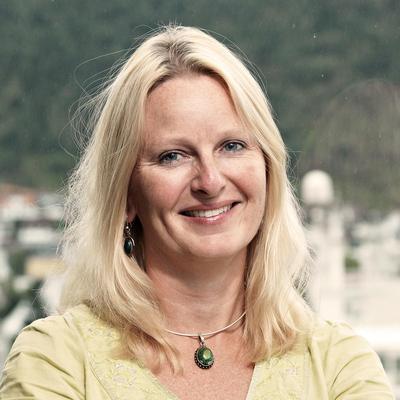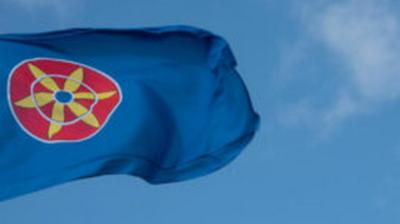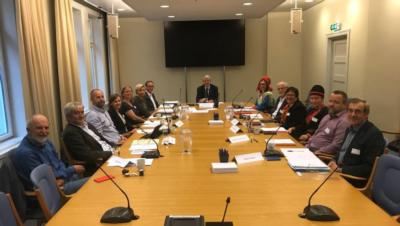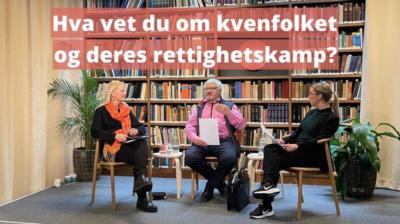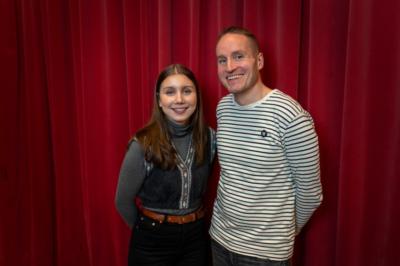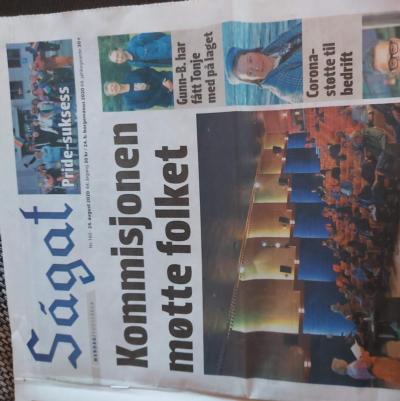Expectations, Truth and Reconciliation in a Democratic Welfare State (TRUCOM)
The Indigenous Sami and the Kven/Norwegian Finns and Forest Finns Minorities in Norway
This project will study how Norway - a well-established democratic welfare state - attempts to settle the negative effects of long-lasting policies of assimilation and discrimination against indigenous and minority groups through the establishment of a formal truth and reconciliation commission. How and in what ways will the Norwegian Truth and Reconciliation Commission (TRC) – established by the Norwegian Parliament in 2018 - lay the foundations for truth and reconciliation between the Sami and the Kven/Norwegian Finns on the one hand, and these groups and the majority population on the other? The project will address this overarching question from three different perspectives that roughly coincide with three stages of the TRC’s work: (1) its origins, (2) its operations, and (3) its report and recommendations.
Historically speaking, the more than 70 truth commissions established world-wide since the early 1980s have been institutional responses to atrocities committed by non-democratic regimes, typically during military dictatorships, armed civil conflict, or apartheid. Truth commissions have recently turned into a tool for also addressing historical wrongs and laying the basis for reconciliation in mature democratic states.
This new project will examine how the Norwegian Truth and Reconciliation Commission (TRC) established by the Norwegian Parliament in 2018, interprets and implements its mandate. In short, the project will (1) analyse the background to the TRC’s establishment; (2) follow the process of the TRC as it unfolds, analysing the interactions between the TRC and interest groups/the majority population; (3) analyse the TCR’s final report and recommendations, and provide an assessment of whether expectations to the TCR’s work have been met.
As a starting point, the project will provide a thorough historical analysis of the assimilation policy within a welfare state framing. This includes identifying dominant understandings of the government’s Norwegianization policy, as well as mapping different perceptions of its implications. This will form the basis for the research on the commission’s activities, priorities, efficiency, and perceived legitimacy. The project will use different methods, including desk studies, media analysis, interviews, surveys, and participation at open hearings and meetings organized by the truth commission
The project will generate new knowledge on how mature democracies that that have historically pursued an aggressive assimilation policy towards minority groups can organize and implement a restorative process to foster reconciliation between the state, the majority population and indigenous/minority groups. The project will build on previous research and draw on experiences from truth and reconciliation efforts in other welfare states, such as Canada, Greenland, and Australia.
The research is a collaboration between the University of Tromsø - The Arctic University of Norway and Chr. Michelsen Institute, who collectively have broad research expertise on Sami and Kven/Norwegian-Finnish relations nationally, and on reconciliation commissions internationally.
Project team: Eva Josefsen (PI), Else Grete Broderstad, Hans-Kristian Hernes, Kjell Ole Kjærland Olsen, Stein Roar Mathisen (all at the UiT - The Arctic University of Norway) and Elin Skaar (CMI).
Advisory board: Veli-Pekka Lehtola, Ronald Niezen, Joanna Quinn, Alejandro Fuentes, Mia Krogh, and Birgitta Fossum.
Norwegian Research Council, SAMISK FORSKNING, 2020 – 2023.
